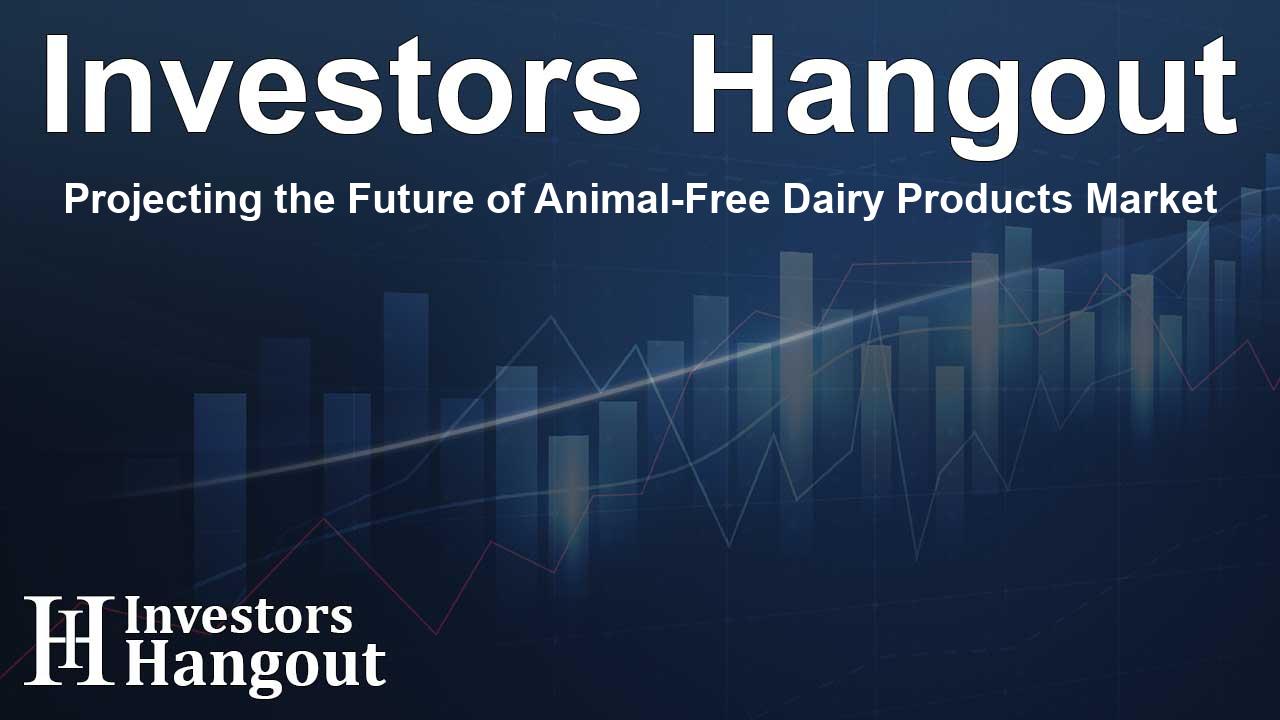Projecting the Future of Animal-Free Dairy Products Market

The Expanding Animal-Free Dairy Products Market
The future of the animal-free dairy products market is set for significant expansion, projecting a rise from USD 26.77 billion in 2024 to an impressive USD 69.47 billion by 2034. This growth represents a compound annual growth rate (CAGR) of 11.0%. As consumers become increasingly aware of health, environmental, and ethical issues surrounding traditional dairy production, alternative dairy products created without animal-derived ingredients are experiencing a surge in popularity.
Understanding Animal-Free Dairy Products
Animal-Free Dairy Products are at the forefront of innovation within the food industry. These products replicate the taste and texture of traditional dairy items like milk, cheese, and yogurt without using animal-derived components. They are primarily produced through methods such as fermentation utilizing microbial cultures or through plant-based sources. This transformation is aimed at providing sustainable and ethical options for consumers, particularly vegans or those who are lactose intolerant, environmental activists, and individuals concerned about animal welfare.
Health & Environmental Consciousness
The increasing adoption of plant-based diets can be attributed to a growing consumer base that prioritizes health and sustainability. By choosing animal-free dairy, these consumers mitigate the environmental impact linked with conventional dairy farming, including greenhouse gas emissions and excessive resource usage.
Current Landscape and Market Players
The competitive landscape within the Animal-Free Dairy Products Market is characterized by rapid growth and technological advancements. Key players are diversifying their product offerings while expanding their global presence to remain competitive in this rising market. Notable companies involved in this sector include Danone, Nestle, Unilever, Oatly, Alpro, Silk, Perfect Day, TurtleTree Labs, and Motif, all contributing to the innovation needed to meet increasing consumer demands.
The Role of New Developments
Recent developments in the sector, such as Tomorrow Farms' Bored Cow brand, which has introduced drinkable yogurt made using fermentation techniques, underscore how brands are stepping up to offer unique solutions catering to today's health consciousness. Their new yogurt alternative comprises ingredients like coconut cream and cane sugar, alongside being free from lactose and cholesterol.
Market Dynamics Driving Growth
The animal-free dairy sector is particularly influenced by several key drivers that include:
- Rising Vegan and Plant-Based Preferences: As more individuals choose vegan lifestyles, the demand for animal-free dairy alternatives continues to swell. This is fueled by an increased awareness of health benefits and ethical considerations surrounding animal farming.
- Product Diversity and Accessibility: Supermarkets and hypermarkets serve as significant distribution channels, offering consumers easy access to plant-based dairy options.
Market Segmentation Insights
The market segmentation includes various sources of animal-free dairy, highlighting soy as a dominant player due to its established presence in the sector, offering products like soy milk and yogurt. Furthermore, other plant-based alternatives including almond, oat, and coconut, are also gaining traction among consumers seeking diverse options.
Consumer Behavior and Trends
Today's consumers are increasingly opting for traditional dairy alternatives like nut and grain-based products, reflecting a broader trend where dairy alternatives have transitioned into the mainstream market. This behavioral shift continually drives the expansion of the animal-free dairy products market.
Regional Insights and Future Considerations
Regional variations play a role in the growth of the animal-free dairy market. In North America, there is a noticeable shift towards these products driven by environmental concerns, while in the Asia Pacific, a substantial portion of the population deals with lactose intolerance, further contributing to the demand for alternatives.
Frequently Asked Questions
What are animal-free dairy products?
Animal-free dairy products are alternatives to traditional dairy that do not contain animal-derived ingredients, often made using plant-based sources or fermentation techniques.
Why is the demand for animal-free dairy products increasing?
The demand is rising due to greater consumer awareness of health, environmental, and ethical issues, alongside the expanding popularity of vegan and plant-based diets.
Who are the main players in the animal-free dairy products market?
Major players include Danone, Nestle, Unilever, Oatly, Alpro, Silk, and Perfect Day, all of which are striving to innovate and enhance their product offerings.
What is the projected market growth rate for animal-free dairy products?
The animal-free dairy products market is projected to grow with a CAGR of 11.0%, reaching USD 69.47 billion by 2034.
What are some examples of animal-free dairy products?
Examples include plant-based milks (like almond and soy), yogurts made from cashew or coconut, and cheese alternatives using various plant-based ingredients.
About Investors Hangout
Investors Hangout is a leading online stock forum for financial discussion and learning, offering a wide range of free tools and resources. It draws in traders of all levels, who exchange market knowledge, investigate trading tactics, and keep an eye on industry developments in real time. Featuring financial articles, stock message boards, quotes, charts, company profiles, and live news updates. Through cooperative learning and a wealth of informational resources, it helps users from novices creating their first portfolios to experts honing their techniques. Join Investors Hangout today: https://investorshangout.com/
Disclaimer: The content of this article is solely for general informational purposes only; it does not represent legal, financial, or investment advice. Investors Hangout does not offer financial advice; the author is not a licensed financial advisor. Consult a qualified advisor before making any financial or investment decisions based on this article. The author's interpretation of publicly available data shapes the opinions presented here; as a result, they should not be taken as advice to purchase, sell, or hold any securities mentioned or any other investments. The author does not guarantee the accuracy, completeness, or timeliness of any material, providing it "as is." Information and market conditions may change; past performance is not indicative of future outcomes. If any of the material offered here is inaccurate, please contact us for corrections.